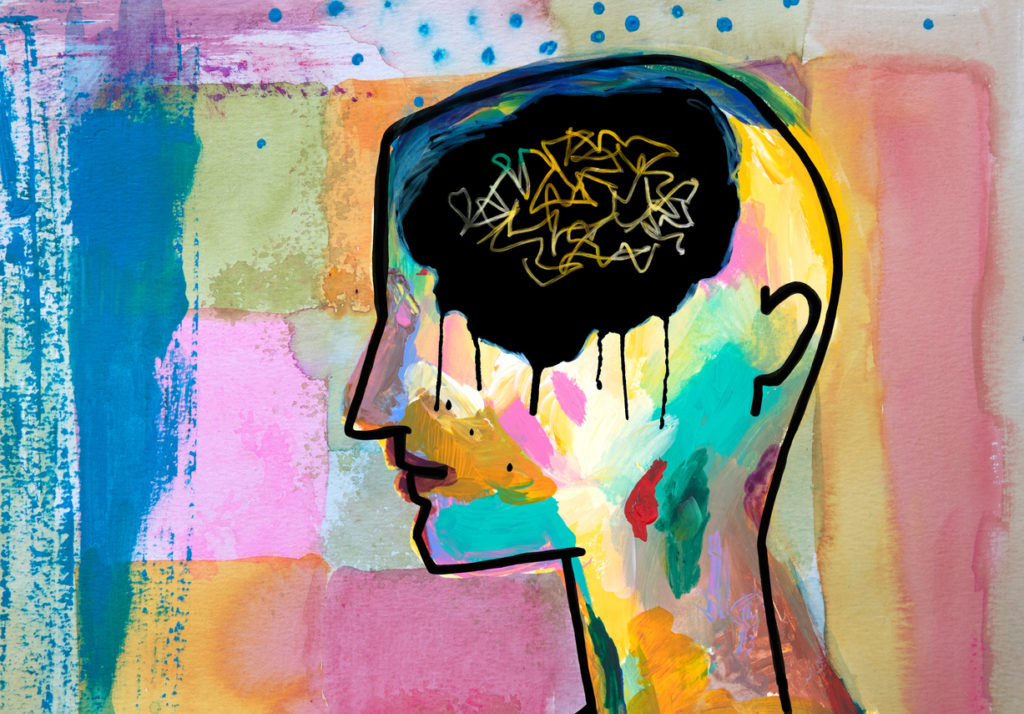Caring for a person with Alzheimer’s disease is often a heroic task that demands a great deal of adjustment, patience and understanding. This video recognises the importance of carers of people with Alzheimer’s disease and examines issues faced by them. Three couples share their unique experiences of managing life with Alzheimer’s and demonstrate practical ways to cope (such as using diaries, creating routines and developing a roster system of family/friends to help). The video also highlights the importance of ensuring the carer is looked after, with advice from medical professionals.
Continue watching this series
This is the last of three videos.
 |
To watch the first video in the series, see Dementia: 10 minute exercises to improve your physical and mental health. |
 |
To watch the second video in the series, see Dementia: How Alzheimer’s Disease affects you and your carer. |
Transcript
Jenny
We love being in the garden together. And we like going for picnics at Wellington Point, that’s a beautiful spot. And we both love the beach and we like walking. All the simple things and we really do, sort of have a good life.
There you are, there’s yours.
Leigh Hatcher
For the past two and a half years, Jenny and Ian have been living with Alzheimer’s disease. Jenny is Ian’s wife and carer. Of course they’ve had to make lots of changes to their lives. Ian has required lots of care and understanding, and importantly, so has Jenny.
Hello, I’m Leigh Hatcher. When a family suddenly encounters something like Alzheimer’s disease, it’s very easy to forget the carer. It’s entirely natural for the disease and the patient to take centre stage. But so often the way a family deals with such an upheaval will be determined by how the carer manages. This video is about them. We’ll be offering some very practical advice to carers and their families, drawn from a range of real life experiences, as well as from one of Australia’s leading experts in this area.
You may want to watch this video more than once. It will be important for you to show it to your wider family and friends. It’s also a good idea to write down any questions you have while you’re watching, so you can ask your doctor during your next visit.
We’ve divided this video into three chapter headings, so you can easily fast forward or rewind to sections you want to see again. This is how it’s divided up.
First, Understanding Alzheimer ’s Disease. It’s important to start here, to know exactly what the patient and the carer are dealing with.
Second, Managing Alzheimer’s Disease. What’s the best way for both the patient and carer to deal with this disease? We’ll learn that this sense of management is by far the best way to live life with Alzheimer’s.
And third, Caring for the Carer. We’ll look at a range of very practical ways in which the carer can be looked after and look after themselves. It’s very important to understand, that’s okay.
To show us the way, three couples will be telling us of their very different experiences. Jenny and Ian, Gary and Trisha, and Kath and Jim. They’re all living with Alzheimer’s disease and have learnt a great deal of the disease itself, how to manage it, and what’s best for the carer, as well as the patient.
We’ll also get some expert advice from Dr Gerard Byrne, a specialist and one of Australia’s leading authorities in this whole area.
Dr Gerard Byrne
It’s a very important area I think.
Understanding Alzheimer’s Disease
 [Starts 4:05]
[Starts 4:05]
Leigh Hatcher
Alzheimer’s disease is condition which affects the working of cells in the brain. As time goes by the disease continues to damage different areas of the brain, affecting different brain functions. Because Alzheimer’s disease affects different people in different ways, it’s hard to predict what will happen to any one person. However, in the early stages of the disease, common symptoms include feeling confused or vague and having trouble remembering words and names. This picture of confusion, memory loss and possible personality change, caused by Alzheimer’s disease is sometimes referred to as dementia.
Gary
When I got the diagnosis, I was personally devastated and obviously the family were as well.
Jenny
I don’t think I really believed it at first. Although I knew something was wrong.
Kath
It was only when I really found out that it was Alzheimer’s that then I said, “Well I have to accept this. I can’t change it, I can only live with it.”
Leigh Hatcher
There’s no doubt that that first diagnosis of Alzheimer’s disease marks a major turning point in a family’s life. If we’re going to deal with it well, it’s important to understand what we’re dealing with. Dr Gerard Byrne is an acknowledged expert in dealing with both Alzheimer’s disease and the needs of the carer.
Dr Byrne can you explain to us exactly what is Alzheimer’s disease?
Dr Gerard Byrne
Well Alzheimer’s disease is the most common cause of the medical syndrome of dementia. People can have heart failure and kidney failure where those organs don’t do the job they’re meant to do. Well similarly you can have brain failure where the brain doesn’t do the job it’s meant to do. In Alzheimer’s disease, brain cells die off gradually over time and brain function deteriorates.
Leigh Hatcher
And that’s one of the very early challenges about Alzheimer’s disease. It’s something that sneaks up on you. There’s no single, sudden event. And yet it’ll lead to very real changes in a family’s day to day life.
Jenny
He can’t do arithmetic any more so he doesn’t do the finances which he used to do. Um, he can’t really read a book in the way he used to. And even getting a letter in now. I read the letter to him because that way he absorbs it more.
Ian
Jenny pointed out to me the other day that I tipped a tin of coffee down the sink. So there’s no denying that I’ve done these stupid things. But at the time I really wasn’t aware.
Jenny
He’s more dependent on me. He’ll ask me how to do things, where it used to be the other way around that I used to ask him how to do everything.
Trisha
It’s absolutely gorgeous.
Gary
Lovely. Here’s some old tab tickets. I wonder if they’re worth anything.
Leigh Hatcher
It’s now several years since Trisha was diagnosed with Alzheimer’s disease. Husband Gary is her main carer.
Gary what were the things that you were stating to notice that were different?
Gary
Well I think the first thing I noticed was the state of the house. Trisha’s always been a phenomenally smart housekeeper.
Leigh Hatcher
Jim and Kath have been living with Alzheimer’s disease for more than two years, since Jim was diagnosed.
Kath
Yes I noticed we were always squabbling about what had been said and what we had decided to do. I even suggested that we have a tape running so that we have got a record of what was decided.
Leigh Hatcher
Was that frustrating for you?
Kath
Well yes it was because, whose memory do you believe? Do you believe mine or his? And I sort of felt, it’s difficult, I’m sure that I was remembering things.
Jim
And we both felt the same.
Leigh Hatcher
So for the patient and the carer, this can be a disease that’s like wrestling with smoke, demanding a great deal of adjustment, patience and understanding.
Dr Gerard Byrne
I think it’s terribly important to understand that although Alzheimer’s disease is a form of brain failure, people with this condition, still retain many of the attributes that they had prior to the onset of the disease. Including the capacity to feel embarrassment or awkwardness.
Leigh Hatcher
One of the greatest struggles with Alzheimer’s disease is feeling a sense of powerlessness, of not being able to do something about it. Well in this day and age there are medications available that can perhaps, better manage the course of this disease.
Dr Gerard Byrne
Well we’re very fortunate that there are now several medications available to improve the course of Alzheimer’s disease. These medications have been developed following a large amount of research and they’re now in widespread use in the community. The greatest benefit occurs to those patients who start the medications early. Although they’re not for everyone.
Managing Alzheimer’s Disease
 [Starts 9:02]
[Starts 9:02]
There are a number of ways in which life with Alzheimer’s disease can be managed to enhance as much as possible, everyone’s quality of life, patient and carer. Under this general area of managing Alzheimer’s there are four things to keep in mind when it comes to attitudes and actions.
- Don’t blame the patient. It’s not their fault.
- Simplify life. Do as much as you can to eliminate complexity and confusion.
- It’s best to show the patient what to do. Don’t just tell them.
- And perhaps more than anything else, adopt a managerial lifestyle as much as you can. Be organised. Look for ways to structure life.
Dr Gerard Byrne
If a carer thinks that a patient is being deliberately difficult and hard to get on with, it can provoke a negative reaction. I think it is terribly important to help the family and carer come to an understanding that the person with Alzheimer’s disease is not being deliberately difficult.
Kath
You shouldn’t blame them for having Alzheimer’s, any more than you would blame them if they had cancer or MS. You have to just go on loving them and helping them.
Jenny
You really have to tell yourself, in fact sometimes you sort of have to take deep breaths and you think, “that’s the Alzheimer’s, I’d better not rouse like I would have once”. Because if I do it can lead to me getting really distraught and to Ian, well he can almost lose his control then too. You know, he gets very upset.
Leigh Hatcher
Jenny and Ian have done well in simplifying and structuring their life. She’s come to realise how important it is not just to tell Ian what to do but to show him as well, then they’ll both be doing better. If there’s a problem, it’s best to find a way to manage a way around it.
Ian
We’ll pull my phone out in a few minutes.
Jenny
We will yes. Well, you will. You’ll be using it.
Ian does the shopping. He’s got it all organised. I think he’s having quite a lot of fun with the girls down at the supermarket. He says he just puts the money on the counter and they push the change back to him. And they’re very, very good that way.
Leigh Hatcher
This whole concept of living a managed lifestyle is one of the keys to helping the person with Alzheimer’s disease and their carer cope.
Kath
I think Jimmy needs to keep a diary. He’s always had a diary and it’s even more important now. I would say work out a routine, a daily routine and stick to it. And then I think the person who has got Alzheimer’s is quite happy with that.
Dr Gerard Byrne
Well carers who adopt a managerial style who tend to be interested in organising things, seem to cope better with the challenges of Alzheimer’s disease. Carers need to learn ways of organising their life with the person they’re caring for, to reduce their own emotional burden but still provide good quality, personal care.
Jenny
We’ve got a whiteboard where he writes on what he has to do during the day. He’s got my phone number and he’s got what day it is, because he forgets what day it is sometimes. He’s got a diary, he uses a diary constantly, as to what’s going to happen and what appointments he has. Mostly I think it’s the diary and that whiteboard.
Ian
You see behind that wall there, there’s a big sign saying today is… what’s today? [laughing].
Jenny
Monday
Kath
You can make them happy or you can make them miserable and it’s up to you. In fact I suppose thinking about it you have a large responsibility for another person’s life. In fact I wouldn’t, I wouldn’t have anyone else caring for him.
Caring for the Carer
 [Starts 13:03]
[Starts 13:03]
Leigh Hatcher
It’s tremendously important to realise that in living with Alzheimer’s disease, the very best way that the patient can be looked after is to have a carer who is being looked after as well.
How can that happen?
Well if you’re a carer, there are two main things to keep in mind. First, don’t be afraid or embarrassed to ask for help. Second, you need to look after yourself.
Gary Sail has a busy stressful job, heading up the cleaning contractor for Stadium Australia in Sydney, the main stadium used for the year 2000 Olympic Games. His wife Trisha needs a high level of quality care.
Gary has just had to ask for help, organising a schedule of rostered help from friends, family and community services.
Gary
Yeah well I’ve got strong family support with my son and daughter. We’ve also got some of Tricia’s relatives and some community support from carer’s organisations.
Leigh Hatcher
You’ve got a roster system working?
Gary
Yes, yes. Basically that’s what it is. That’s how it works, so that Tricia is on her own the least time possible.
Leigh Hatcher
There’s one vital point to keep in mind here. A carer should not feel guilty or embarrassed about asking for help. Often, it’s best for the patient to have a diversity of care.
Jenny
There is always help available if you’re going to need it. And that cocoon is, it comprises our children. You know if I have a worry about Ian I can talk to them and know that they understand. They just give another dimension to our lives. It’s sort of very rich really.
Gary
Well you’ve got to take a pragmatic approach, the things that Trish used to do, which it the washing, ironing, housework, shopping, etc. You’re doing yourself. So you’ve got to take it up and run with it and do the best you can.
Leigh Hatcher
There’s one more essential thing for the carer to keep in mind and again, not feel guilty about. You’ve got to look after yourself, in lots of different ways. First you’ve got to think of your own health. What good is a carer if they are struggling with health issues of their own?
Dr Gerard Byrne
It’s important for carers to have their own general practitioner and to see that GP on a regular basis. They’re just not going to be able to look after someone with Alzheimer’s disease if they have neglected their own health.
Leigh Hatcher
And a carer just has to know that it’s okay to have a break. And it’s okay to treat yourself to something special. Spend some time with friends, get together with other carers or get yourself out and do something that you enjoy. And get some exercise.
Dr Gerard Byrne
Well caring can be an emotional rollercoaster. I think it’s extremely important for carers to have the opportunity to share some of their experiences with other carers.
Leigh Hatcher
The support groups run by the Alzheimer’s Association and other community groups allow this to happen. Many of these organisation provide respite care, so that the person with Alzheimer’s disease can be looked after while the carer attends the carer support groups. Here people are able to share information and tips on how to manage many difficult situations. Now that’s an enormous support for a carer looking after someone with Alzheimer’s disease.
Gary
I think it’s most important that you take a break personally. Whilst I work, I try to play golf once a week, usually on a Sunday.
Jenny
I think it’s very important that you do things for yourself, apart from the caring. To keep up with hobbies. Or even take on new hobbies. Because otherwise I think that you could become very resentful, and that’s no good to either yourself or the person you’re caring for.
Leigh Hatcher
No one denies that Alzheimer’s disease can be a struggle. Being a carer can truly be a heroic task. It’s a big ask for the carer and will become more demanding as time goes on. But, with a right understanding of this disease, good management and good care for the carer, life can still be good. The carer just can’t be forgotten.
Jenny
Well, life’s very good at this stage. In fact our daughter has done a tapestry which says “live simply” and that is how we’re living, simply, and we really enjoy it.
Gary
You’ve just got to accept the fact that what’s happening in your life. You’re going to need family, community and your friends support and with that, yeah, you’ll get through.
Kath
My best advice is to accept the situation and do the best you can for your husband or whoever it is and love him and be sure he knows that you love him. And that you’ll be with him and that you’ll look after him. And that he doesn’t need to worry about his memory. Because you’ll have a memory for both of you.
Jenny
If you can live in the present and enjoy what you’re doing now, well, it’s half the battle I think. For both of you.
This educational video was produced for better health, by Pfizer.
More information
 |
For more information, visit Dementia. |
All content and media on the HealthEngine Blog is created and published online for informational purposes only. It is not intended to be a substitute for professional medical advice and should not be relied on as health or personal advice. Always seek the guidance of your doctor or other qualified health professional with any questions you may have regarding your health or a medical condition. Never disregard the advice of a medical professional, or delay in seeking it because of something you have read on this Website. If you think you may have a medical emergency, call your doctor, go to the nearest hospital emergency department, or call the emergency services immediately.







